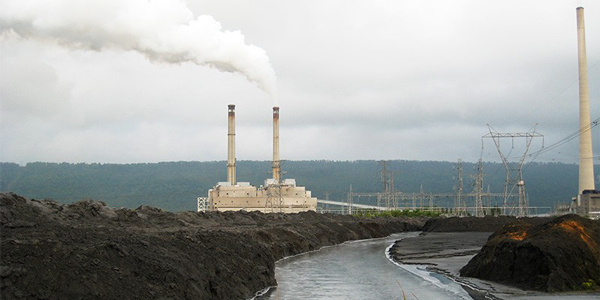By Michael Brooks
The House Energy and Commerce Committee last week heard testimony on Republican-backed legislation that could allow power plants and industrial boilers to avoid expensive upgrades under EPA’s New Source Review (NSR) program.
Facilities are subject to NSR if they make non-routine modifications that increase annual emissions; such plants must use the “best available control technology” to minimize the emissions increase.
The bill, written by Rep. Morgan Griffith (R-Va.), would amend the definition of “modification” under Clean Air Act Section 111a to mean any alteration to a facility that increases its hourly pollutant emission rate.
The modification clause does not specify how a facility’s emissions should be measured to determine if a change would result in a pollution increase, which has led to multiple lawsuits since the clause was added in 1970. Under the NSR program, EPA has used a projection of annual emissions based on the modification.
“This type of annual emissions projection approach necessitates the consideration of complex factors such as projecting future demand of the product being produced and the selection of baseline emissions to use as a comparison point,” committee Republicans said in a memo ahead of a Environment Subcommittee hearing on the bill Wednesday. “Additionally, in certain instances, this type of emissions projection results in an overestimation of emissions, which is shown by comparing the projected emissions with a source’s true emissions after the fact.”
The bill would also exempt from NSR any modification that “reduces the amount of any air pollutant emitted by the source per unit of output or is designed to restore, maintain or improve the reliability or safety of the source.” Republicans said that NSR has impeded or canceled projects intended to reduce a facility’s pollution. The law already exempts routine maintenance or repair from review.
Support
At Wednesday’s hearing, Bill Wehrum, assistant administrator of EPA’s Office of Air and Radiation, told the subcommittee that the Trump administration does not have an official position on the bill. “Having said that, I strongly support the overall goals of the discussion draft,” he said. “The principal focus of the discussion draft on refining the definition of ‘modification’ in the Clean Air Act would go a long way towards simplifying application of the NSR program.”
Wehrum praised the bill’s exemption of pollution-reducing additions, noting that, “sometimes, the operation of such equipment, while it results in tremendous emissions reductions for some pollutants, may in some instances actually lead to increases in the emissions of other pollutants.” He said EPA had attempted to implement such a provision but was overruled by the D.C. Circuit Court of Appeals.
Kirk Johnson, senior vice president of government relations for the National Rural Electric Cooperative Association, said NSR has “more often served as an impediment, rather than an enhancement, to maintaining and improving efficiency at power plants.”
“One significant obstacle of the NSR permitting program is its application to equipment repair and replacement as well as even routine maintenance activities at existing generating units,” Johnson said. “Although routine maintenance, repair and replacement are supposedly excluded from being considered as ‘major modifications’ — and thus not subject to NSR — what qualifies as these NSR exemptions often changes with shifting EPA interpretations. This has led to utilities performing what they thought qualified as routine maintenance, repair and replacement, only to be cited for NSR violations years after the fact.”
Opposition
Paul D. Baldauf, assistant commissioner of the New Jersey Department of Environmental Protection, however, said Griffith’s bill could increase out-of-state emissions and extend the life of older generators, causing the state to fall out of attainment for the National Ambient Air Quality Standards (NAAQS). Baldauf cited as an example a generator that undergoes changes to increase its efficiency while also increasing the maximum heat input — the amount of fuel burned per hour — to increase electric output.
“This project would decrease the pounds of CO2 and some other pollutants emitted per megawatt-hour but would increase the megawatts generated,” he said. “Without additional controls, such a project would result in both increased hourly and annual emissions of all its pollutants, including CO2, criteria pollutants and air toxics, resulting from the increased fuel use. These increased emissions could likely result in adverse health impacts despite the increase in efficiency of the unit.”
Environmental consultant Bruce C. Buckheit, who served as director of EPA’s Air Enforcement Division during the Clinton and George W. Bush administrations, also opposed the bill. “The draft is not needed by the regulated community for any purpose and would not advance one of the fundamental purposes of the Clean Air Act — to eliminate, over time, the disparate treatment of new and existing sources,” he said. “It would severely impair the ability of the modification rules to effect this purpose and would exacerbate the current barrier to investment in new manufacturing and electric generating facilities created by the difference in the treatment of new and existing facilities.”
Democrats are likely to oppose the bill. “Without a firm requirement that facilities reduce the levels of all the dangerous pollution they emit, they simply will be allowed to pollute more,” Rep. Frank Pallone (D-N.J.), ranking member of the full committee, said in a statement. “That’s what the language in the bill on ‘maximum achievable hourly emission rate’ is all about.”





